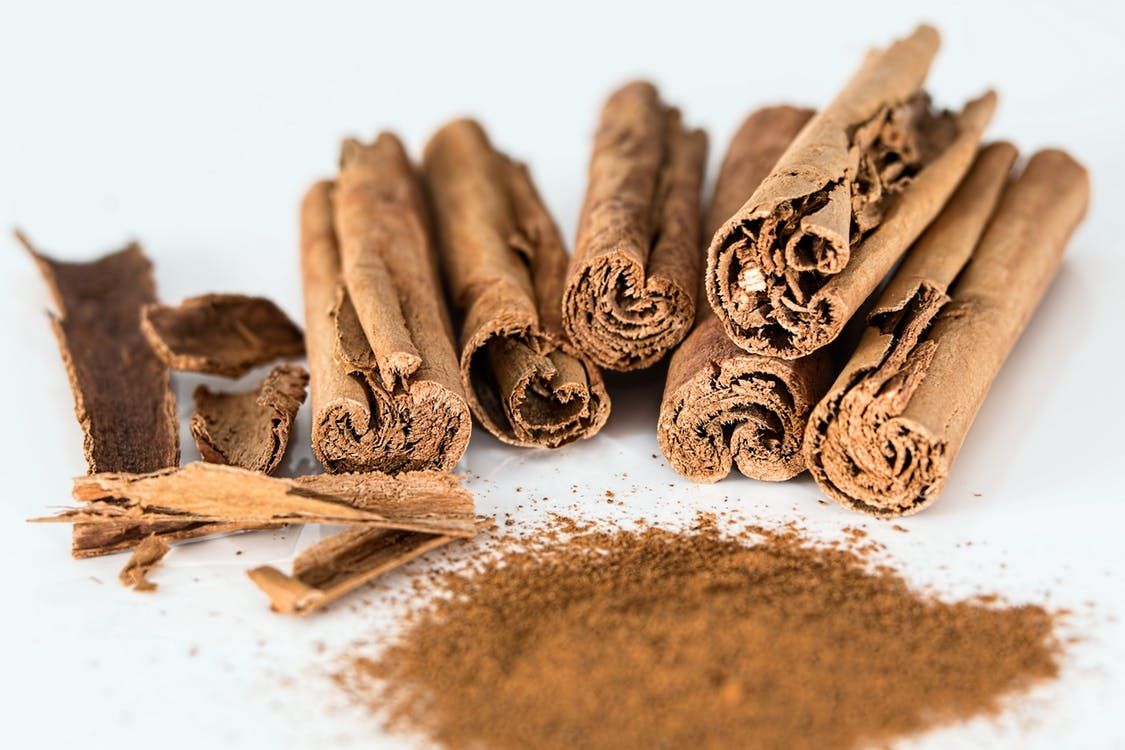While it may be an ingredient in your favorite batch of cookies, or a flavor you like to add to your morning bowl of oatmeal, cinnamon is more than just a delicious taste.
Not only does it make food taste better, cinnamon can actually do a lot for your health. At only six calories per teaspoon, this spice is an guilt-free addition to many dishes without having to rely on sugar.
Here are eight benefits that you may see with a daily dose of cinnamon in your diet (the Cleveland Clinic recommends about 1/4 to one teaspoon per day).
1. It could lower blood pressure
Some studies have suggested that cinnamon may lower blood glucose levels in people who have type 2 diabetes. This could mean that the spice could be a promising supplement for those who suffer from the disease.
2. It may be able to clear up your acne
Cinnamon has an antibacterial effect which could be translated to breakouts. Create a simple pimple-fighting topical mask by combining 2 teaspoons of raw, organic honey with a sprinkle of cinnamon. After applying it to your face, wait ten minutes and then rinse with warm water and a gentle cloth.
3. It promotes younger-looking skin
According to a 2013 study, research suggested that cinnamon extract "significantly promotes type I collagen biosynthesis within dermal fibroblasts." That means it can help with wrinkles and aging skin!
4. It could help your memory
A research team found that chewing cinnamon gum during a test "improved participants' scores on tasks related to attentional processes, virtual recognition memory, working memory, and visual-motor response speed." While it may have been a small study, if you need to focus, this may help!
5. May cut the risk of heart disease
Cinnamon has been linked to reduce the risk of heart disease, which is the world's most common cause of premature death. Since it has the ability to potentially reduce blood pressure, as well as levels of overall cholesterol, these factors may drastically reduce the risk of heart disease.
6. Cinnamon could have beneficial effects on neurodegenerative diseases
Alzheimer's and Parkinson's diseases are the most common types of neurodegenerative diseases that result in a progressive loss of structure or function of brain cells.
Two compounds found in cinnamon appear to inhibit the buildup of a protein in the brain which is one of the hallmarks of Alzheimer's disease.
Cinnamon was also found to protect neurons, normalize neurotransmitter levels and improve motor functions in Parkinson's disease patients.
7. Cinnamon may protect you against cancer
Cinnamon has been found to reduce the growth of cancer cells and the formation of blood vessels in tumors. It also appears to be toxic to cancer cells, causing cell death. Findings have discovered that cinnamon activates protective antioxidant responses in human colon cells.
8. Cinnamon could help fight bacterial and fungal infections
Cinnamon oil has been shown to effectively treat respiratory tract infections caused by fungi. It can also inhibit the growth of certain bacteria including Listeria and Salmonella. These antimicrobial effects may also help prevent tooth decay and reduce bad breath.
What's your favorite way to include cinnamon in your diet?
Source: Good Housekeeping / Healthline





